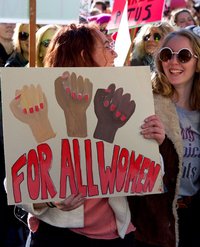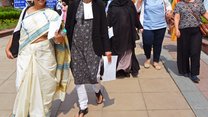UN-Resolution 1325
On October 31, 2000, the United Nations (UN) Security Council unanimously passed Resolution 1325 on “Women, Peace and Security”. The resolution:
- acknowledges the important role of women in peace processes.
- places a clear focus on the protection of women and girls.
- highlights their core role as peacebuilders.
- mandates the contracting states to involve survivors and activists actively in peace processes.
- mandates the contracting states to take the survivors’ needs and perspectives as the basis for political concepts and measures.
UN Resolution 1325 was a milestone in the struggle to achieve recognition for the rights of women and girls during armed conflicts. In contrast to classical security concepts, Resolution 1325 does not put the state at the centre of security policy but rather the protection of women and girls, including their core role as peacebuilders.
In the following years, the UN Security Council continued to develop its Agenda for “Women, Peace and Security” and passed a range of subsequent resolutions which supplement Resolution 1325: 1820, 1888, 1889, 1960, 2106, 2122, 2242, 2467 and 2493.
Updated: 10/2023
Related Content







